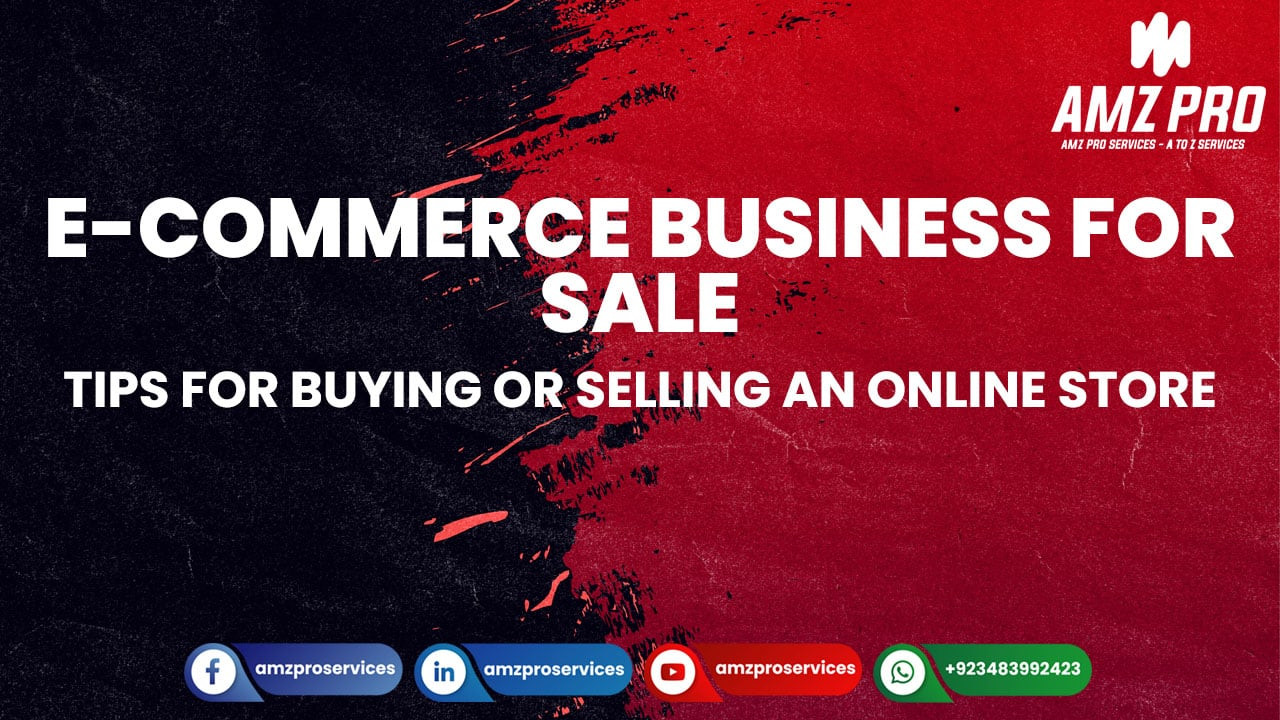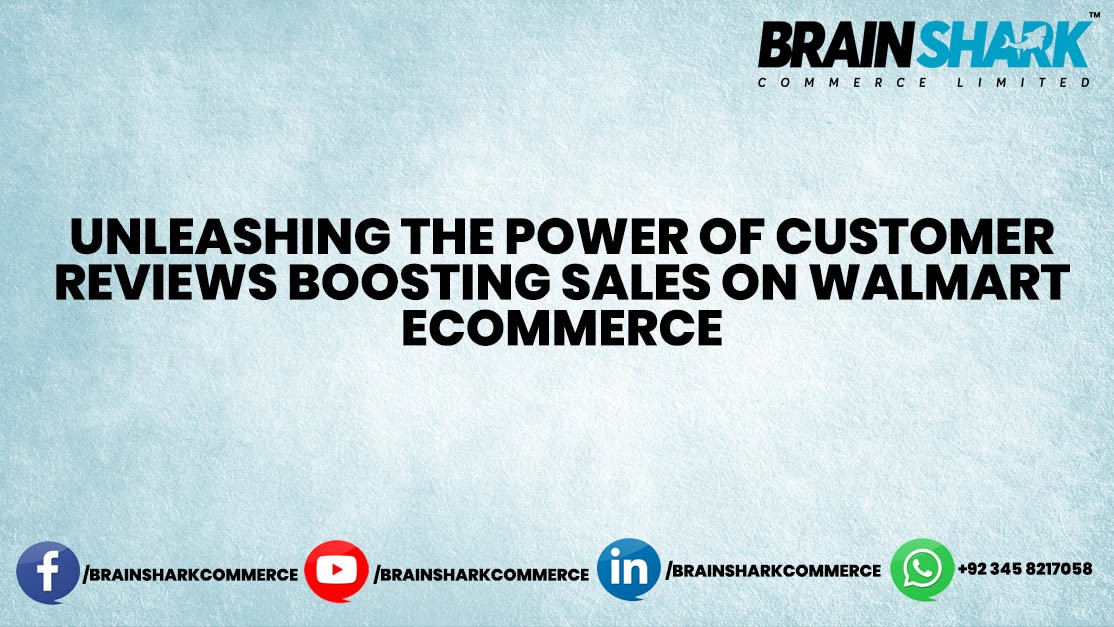E-commerce Business for Sale: Tips for Buying or Selling an Online Store
The world of e-commerce has experienced exponential growth in recent years, with online stores becoming an integral part of our daily lives. As a result, the buying and selling of e-commerce businesses have become increasingly popular. Whether you are an entrepreneur looking to acquire an established online store or a business owner considering selling your e-commerce venture, this blog post will provide you with essential tips and guidance to make informed decisions. Let's explore the key factors to consider when buying or selling an online store.
Conduct Thorough Due Diligence:
Before making any decisions, it is crucial to conduct thorough due diligence on the e-commerce business you are interested in. Evaluate its financial records, traffic analytics, customer base, supplier relationships, and any legal or intellectual property issues. Request comprehensive documentation and verify the accuracy of the information provided. Performing due diligence will help you understand the true value of the online store and identify any potential risks or challenges.
Determine the Right Valuation:
Accurately valuing an e-commerce business is essential for both buyers and sellers. Consider various valuation methods, such as the revenue multiple, profit multiple, or discounted cash flow analysis. Seek the assistance of professionals, such as business brokers or valuation experts, to ensure an objective assessment of the online store's worth. A fair valuation is crucial to strike a successful deal and ensure a mutually beneficial outcome for both parties involved.
Establish Clear Terms and Conditions:
When negotiating the terms and conditions of a sale, it is important to establish clarity and transparency. Clearly define the assets and liabilities included in the sale, the payment structure, any ongoing obligations, and any non-compete agreements. A well-drafted purchase agreement will protect the interests of both the buyer and seller and minimize the potential for disputes or misunderstandings.
Maintain Confidentiality:
Confidentiality is crucial when buying or selling an online store. The premature disclosure of a sale can lead to uncertainties among customers, suppliers, or employees, potentially impacting the business's value. Implement non-disclosure agreements (NDAs) with interested parties to safeguard sensitive information and maintain confidentiality throughout the negotiation process.
Consider Seller Financing Options:
For buyers, acquiring an e-commerce business often requires a significant investment. Sellers can offer financing options to make the purchase more attractive and facilitate the transaction. Seller financing allows the buyer to make payments over time, reducing the upfront financial burden. As a seller, carefully evaluate the buyer's creditworthiness and establish appropriate terms for the financing arrangement.
Leverage Professional Assistance:
Buying or selling an online store involves complex processes and legal considerations. Engaging professionals such as lawyers, accountants, and business brokers with experience in e-commerce transactions can greatly streamline the process. These experts will guide you through legal and financial intricacies, ensuring a smooth and successful transaction.
Build Relationships with Customers and Suppliers:
When purchasing an e-commerce business, consider the strength of its customer and supplier relationships. Evaluate the customer retention rate, satisfaction levels, and supplier agreements. A well-established customer base and reliable supplier network will significantly contribute to the success and profitability of the acquired online store.
Plan for a Smooth Transition:
Smooth transitions are essential for the ongoing success of the e-commerce business. Buyers should create a comprehensive transition plan that includes the transfer of ownership, systems, and knowledge from the seller. Collaboration between the buyer and seller during the transition period ensures a seamless handover and maintains customer satisfaction.
Leverage Marketing and Growth Opportunities:
As a buyer or seller, it's important to assess the marketing and growth opportunities associated with the e-commerce business. Analyze the current marketing strategies, social media presence, and SEO efforts to determine potential areas for improvement. Identify untapped markets, new product lines, or expansion opportunities that can contribute to the future growth and profitability of the online store.
Assess Technological Infrastructure:
Evaluate the technological infrastructure of the e-commerce business, including the website platform, hosting provider, inventory management system, and payment gateways. Understand the scalability and compatibility of these systems to ensure they can support future growth and handle increased traffic or sales volume. Consider any necessary upgrades or improvements that may be required to optimize the performance of the online store.
Consider the Competitive Landscape:
Analyze the competitive landscape within the industry in which the e-commerce business operates. Identify direct and indirect competitors, assess their market share, unique selling points, and pricing strategies. Understanding the competitive environment will help buyers determine the market positioning of the online store and sellers effectively showcase its competitive advantages.
Understand Legal and Compliance Requirements:
Ensure compliance with legal and regulatory requirements when buying or selling an e-commerce business. Familiarize yourself with e-commerce laws, consumer protection regulations, data privacy laws, and intellectual property considerations. Seek legal advice to ensure all necessary licenses, permits, and contracts are in place to mitigate potential legal risks.
Consider the Impact of Intellectual Property:
Intellectual property (IP) is a valuable asset in the world of e-commerce. Assess the ownership and protection of trademarks, copyrights, patents, and trade secrets associated with the online store. Ensure that all necessary IP registrations are in place and properly transferred during the sale. Intellectual property can significantly impact the value and differentiation of the e-commerce business.
Review Financial Projections and Historical Performance:
Carefully examine the historical financial performance of the e-commerce business, including revenue, profit margins, and cash flow. Review the accuracy and reliability of financial statements and projections provided by the seller. Evaluate the potential for growth and profitability based on market trends, customer behavior, and industry forecasts. These financial insights will enable buyers to make informed decisions and sellers to showcase the growth potential of their online store.
Consider Seller's Support and Training:
As a buyer, it is beneficial to negotiate a transition period during which the seller provides support and training. This assistance can include knowledge transfer, guidance on operational processes, and introductions to key stakeholders. Sellers should be prepared to offer ongoing support to ensure a smooth transition and the buyer's success in running the e-commerce business.
Conclusion:
Buying or selling an e-commerce business can be a rewarding and profitable endeavor. By following these tips and considering the various factors discussed, you can navigate the process with confidence and increase your chances of a successful transaction. Whether you're a buyer looking for a promising online store or a seller ready to capitalize on your hard work, these strategies will help you achieve your goals and unlock the potential of the thriving e-commerce market.
Remember, conducting due diligence, establishing clear terms and conditions, maintaining confidentiality, leveraging professional assistance, and assessing growth opportunities are all essential steps to ensure a smooth and mutually beneficial buying or selling experience. With careful planning, thorough analysis, and a strategic approach, you can make informed decisions and maximize the value of your e-commerce business.

